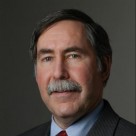 Ron Ashkenas is a Senior Partner of Schaffer Consulting and an internationally recognized consultant who writes extensively on organizational change. His recent article, “The Dangers of Deference,” published on the Harvard Business Review blog considers the prevalence of deference to authority within organizations. Recognizing “that managers at all levels need their people to add ideas, provide different perspectives, and challenge them” he offers the following suggestions for those in leadership positions as they relate to subordinates:
Ron Ashkenas is a Senior Partner of Schaffer Consulting and an internationally recognized consultant who writes extensively on organizational change. His recent article, “The Dangers of Deference,” published on the Harvard Business Review blog considers the prevalence of deference to authority within organizations. Recognizing “that managers at all levels need their people to add ideas, provide different perspectives, and challenge them” he offers the following suggestions for those in leadership positions as they relate to subordinates:
Give them encouragement and make it easy. Actively ask your people for their opinions. Draw them out. Tell them that your positions are tentative first thoughts and that you want them to help you flesh them out. Recognize and reinforce people who do speak up. Start your meetings by saying that this is “safe space” where you can challenge each other. And most importantly, if you do start feeling defensive and threatened, try not to react immediately in a way that might shut down the discussion.
So What?
Pastors, executive directors, and other top level leaders of churches and religious nonprofit organizations need to be aware of the authority granted on the basis of their office and work to create an organizational culture that overcomes the tendency toward deference. In the parish setting this work must be intentional and ongoing and include both staff and volunteer leaders. If either staff or the church’s formal leadership body (i.e. Session/Council) simply agrees with what is suggested, then the organization is failing to leverage one of its most vital assets.
- Almost everyone who has been a part of church life for any extended period of time has attended some form of church meeting where people did not speak up primarily because they did not feel they should do so. How common has this experience been for you in church life?
- Are Ashkenas’ recommendations helpful to you (or do you feel they would be for your senior pastor or executive)?
Why or why not? What would you add to his list? - Does your organization have a culture that values the input of all constituents in every meeting? If not, what steps can be taken to address this matter? If so, what can the key leader(s) do (and/or continue doing) to ensure that all people have a voice at the table?